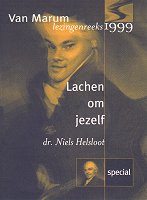 Nietzsche's criticism of science offers points of departure for a consideration of public communication of science and technology and invites us to infer suggestions for everyday practice allowing us to laugh at ourselves more freely.
Nietzsche's criticism of science offers points of departure for a consideration of public communication of science and technology and invites us to infer suggestions for everyday practice allowing us to laugh at ourselves more freely.
 Contemporary science is too much involved in a search for the one and only truth, and is therefore one-sided. Its rationalizations include not just an impoverishment, but an alienation of the people as well. The communication of science and technology aims at stopping the gap between the public and science. But it does so from the philosophical fundamental attitude of contemporary science, which cultivates unity, univocality and seriousness as conditions of truth. Could the communication of science and technology become more effective in the future by adopting another fundamental attitude, in which a coexistence of several truths is acceptible and the limitations of one's own scientific scope may become an object of laughter?
Contemporary science is too much involved in a search for the one and only truth, and is therefore one-sided. Its rationalizations include not just an impoverishment, but an alienation of the people as well. The communication of science and technology aims at stopping the gap between the public and science. But it does so from the philosophical fundamental attitude of contemporary science, which cultivates unity, univocality and seriousness as conditions of truth. Could the communication of science and technology become more effective in the future by adopting another fundamental attitude, in which a coexistence of several truths is acceptible and the limitations of one's own scientific scope may become an object of laughter?